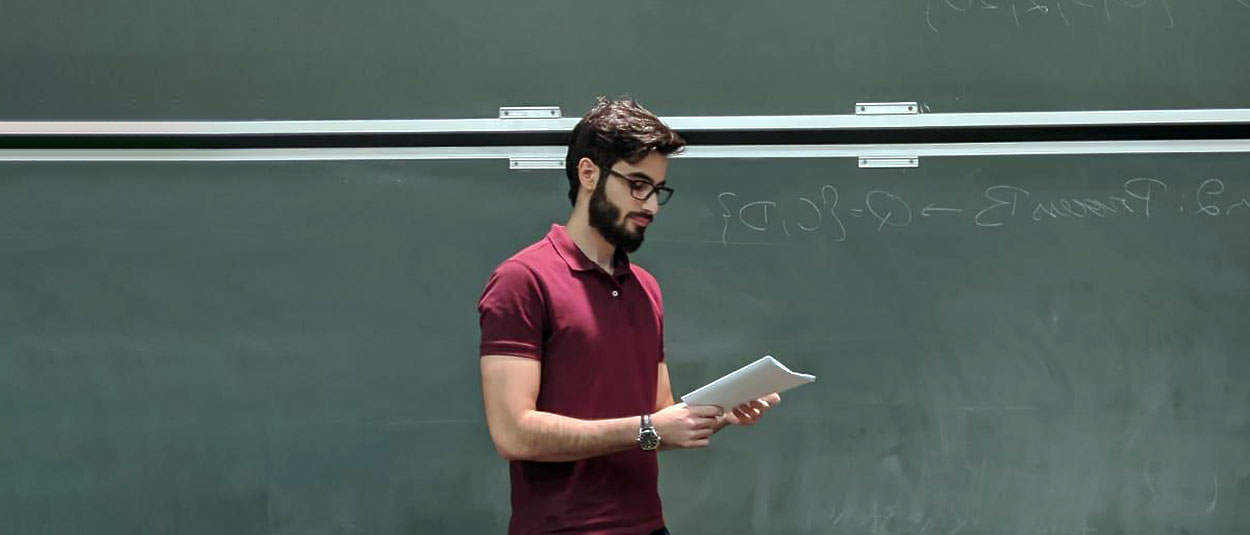Student Spotlight
Maher Said
1- Where are you from?
I’m Brazilian-Lebanese but spent most of my adult life prior to Evanston in Beirut, Lebanon. Both are very lively places with beautiful weather and great food!
2- Where did you get your undergrad degree, and what was your major? Do you have an MS?
I graduated from the American University of Beirut with a degree in Civil & Environmental Engineering, where I also received a master’s degree in the same major in 2015. Following the American University of Beirut, I worked for 2 years as a Transportation Engineer before joining Northwestern, where I got my second master’s degree and am pursuing a Ph.D. in Transportation Engineering.
3- What attracted you to engineering?
When I was 12, I spent time with my older cousin who brought his work laptop with CAD loaded up to do some last moment work. Odd to think that something as mundane as CAD is when I knew I wanted to become an engineer. From then on, engineering always felt exciting to me. Every problem is a unique learning experience and a learning opportunity.
4- What attracted you to pursue a Ph.D. in your specialty area?
I wanted to pursue a Ph.D. as soon as I started my undergraduate studies, but I didn’t decide on Transportation Engineering until a quarter of the way through my master’s degree. I debated between focusing on Transportation Engineering versus Engineering Management. While I still focused on Management throughout my coursework as a second skillset, I really enjoyed the more data science and statistics-heavy nature of Transportation in terms of research and career path.
5- How do you explain your thesis research to a non-scientist?
I study how people feel about cars that drive themselves! Not only cars but any transportation technology. Currently, I’m focused on how people interact with automated delivery technologies that involve no driver or delivery person. Think about it: instead of having a box delivered to you by a delivery driver, a delivery van with nothing but boxes within parks itself in front of your house, and your parcel is then carried to your doorstep by a sci-fi-looking robot.
I also studied how COVID-19 accelerated the adoption trajectory of automated technologies. With people warier of interacting with others at the time, especially strangers, automated technologies became more popular as an interaction-free alternative for travel and deliveries.
6- What attracts you to NU?
The Transportation Program at Northwestern is renowned, one of the top programs in the field, and has a dedicated transportation research center. The research opportunities provided by the program and the center are great and unique. During the pandemic, I was fortunate to participate in a multi-year study on the impact of COVID-19 on mobility and transportation as part of work funded by the U.S. Department of Transportation. Northwestern also has great resources for career advancement and a strong and supportive network of students and alumni.
7-What has been the highlight of your time at NU and CEE?
Meeting and marrying my wife! We met at a joint event by the Transportation and Applied Math student organizations and the rest is history.
8-What has been the most challenging aspect of your graduate school experience?
The first and second years of the Ph.D. are definitely the most challenging. There is too much going on between choosing the most appropriate classes (often unique to each student), getting started with research, and learning how much time to allocate for the day-to-day tasks involved in a Ph.D. It can be hard to figure out the best approach to each of these issues. The biggest lesson I learned is the value of slowing down and not exclusively focusing on being productive in my research. Professional development and staying up with the literature and state-of-the-art are core parts of research that should not be pushed aside.
9- Can you tell us about your experience being mentored or mentoring others?
There’s nothing more important in a Ph.D. than a great mentor, and I’m lucky to have many! Every Ph.D. is a unique experience (and challenge) and having one or more people invested in your success and providing curated guidance is invaluable. I’m also lucky to have been able to look up to some of my Ph.D. colleagues, including my wife.
Helping others is also a rewarding experience. I was a Teacher Assistant throughout the first four years of my Ph.D. and was able to work with and help undergraduate and graduate students through their coursework as well as overall academic career. I also was the President of the Northwestern Transportation Club, where I put a large effort into organizing events targeted at providing students advice and guidance through their studies. Outside of official channels, I just enjoy providing help and advice (sometimes unsolicited) to younger Ph.D. students.
10- What are your interests or hobbies outside of your research?
Lately, I’ve been enjoying reading non-fiction books (I’m currently reading “A Short History of Nearly Everything” by Bill Bryson) and playing video games. I'd also spend time reading about different data science and programming topics and am in the process of writing two different web programs.
More in this section
- About
- People
- Research
- Students
- Alumni
- Contact Us
- Academics
- News & Events
- Equity
- Poromechanics Research of Xiang Li & Ritaja Ray Recognized
- Poromechanics Research of Xiang Li & Ritaja Ray Recognized
- Graduation 2022
- Graduation 2022
- Studying the Deep Earth from Paris
- Studying the Deep Earth from Paris
- Studying the Deep Earth from Paris
- Faculty Spotlight
- Exploring Biological Pathways for Carbon Recycling
- Exploring Biological Pathways for Carbon Recycling
- Faculty Spotlight
- Alumna Spotlight
- Faculty Spotlight

